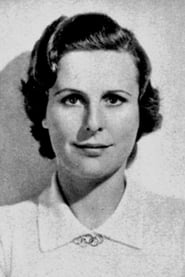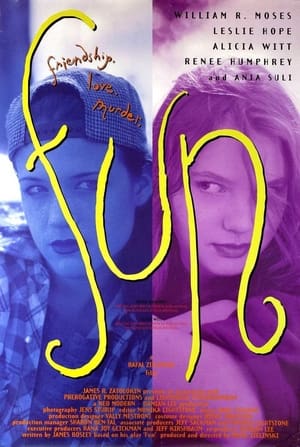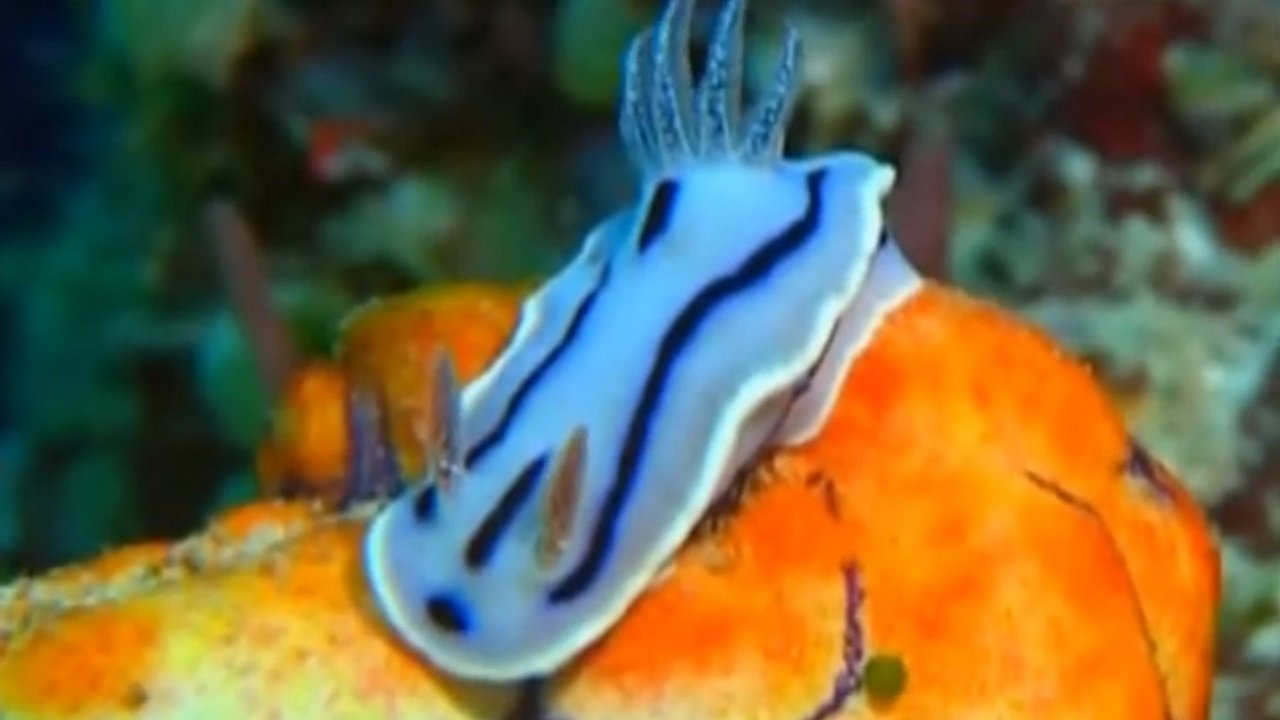
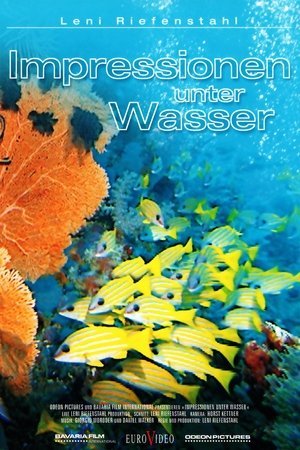
Underwater Impressions(2002)
Riefenstahl explores the undersea world of coral reefs in various oceans around the world. Soundtrack by Giorgio Moroder.
Movie: Underwater Impressions

Impressionen unter Wasser
HomePage
Overview
Riefenstahl explores the undersea world of coral reefs in various oceans around the world. Soundtrack by Giorgio Moroder.
Release Date
2002-08-21
Average
6.6
Rating:
3.3 startsTagline
Genres
Languages:
DeutschKeywords
Recommendations Movies
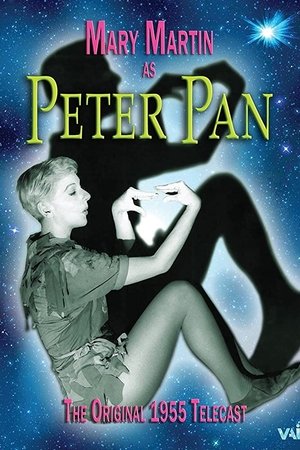 6.1
6.1Peter Pan(en)
This musical version of the tale of the boy who wouldn't grow up aired live on television on March 7, 1955. It was so popular that it was restaged the following year, and again four years later.
Dschugaswili from Georgia(de)
Forced collectivism, famines, errors and mistakes mark Stalin´s ruthless rise to dictorial power and only increase his madness until he even declares a chicken to be an English spy that should be liquidated.
 7.4
7.4Tudo por um Pop Star 2(pt)
Three friends who live in Resende, in the interior of Rio de Janeiro, and plan a trip in Babette's Beetle convertible to celebrate their 15 years of friendship and attend the closing show of the tour of a great pop star, who studied with them as a teenager. and today he is the most famous young singer in Brazil.
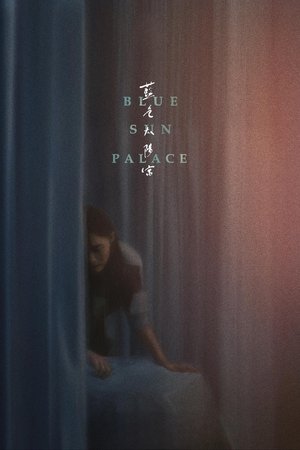 6.0
6.0Blue Sun Palace(en)
A sudden loss catalyzes an unlikely bond between two migrants in the Chinese community of Queens. Navigating lives far from home and the painstaking labor that supports them, they journey through grief together in hopes of finding family.
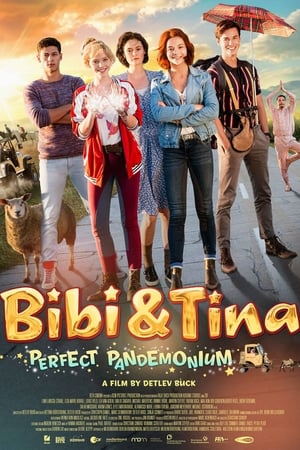 5.5
5.5Bibi & Tina: Perfect Pandemonium(de)
It's perfect pandemonium when Bibi and Tina meet a runaway boy with an attitude problem, who turns out to actually be a girl, named Adea. Adea‘s uncle is so narrow-minded and stubborn that even with all her magic spells, Bibi can't manage to get the two to reconcile. Meanwhile, Falkenstein Castle is being renovated, which is driving the Count to his wits' end. Especially since Alex is planning to hold a music festival at Falkenstein and is determined to go through with it over his father's objections. And if all that was not enough, Tina gets kidnapped. Despite the complete chaos, one thing is clear - in the end, real change comes from everybody working and pulling together, not by magic.
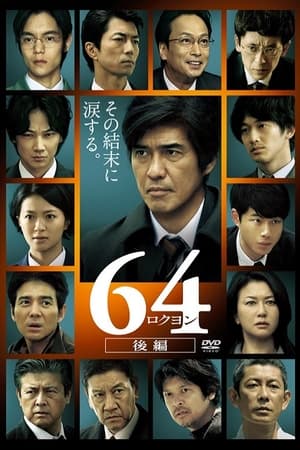 7.4
7.464: Part 2(ja)
1989: 64th and last year of the Showa era. A girl is kidnapped and killed. The unsolved case is called Case 64 ('rokuyon'). 2002: Yoshinobu Mikami, who was the detective in charge of the Case 64, moves as a Public Relations Officer in the Police Affairs Department. His relation with the reporters is conflicted and his own daughter is missing. The statute of limitations for the Case 64 will expire in one year. Then a kidnapping case, similar to the Case 64, takes place. The rift between the criminal investigation department and police administration department deepens. Mikami challenges the case as a public relations secretary.
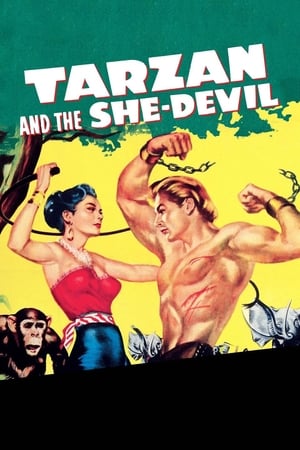 4.8
4.8Tarzan and the She-Devil(en)
The king of the jungle fights off ivory poachers.
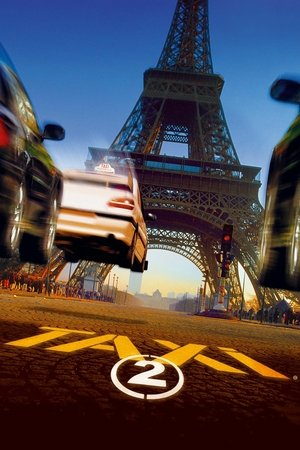 6.2
6.2Taxi 2(fr)
A cabdriver and a cop race to Paris to rescue a love interest and the Japanese minister of defense from kidnappers.
 9.5
9.5Scooby-Doo Safari, So Goodi!(en)
When the gang goes on safari, they encounter a variety of freaky, glowing demon animals.
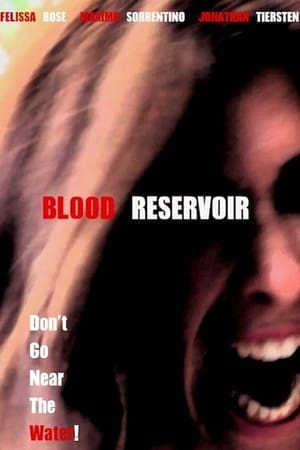 5.0
5.0Blood Reservoir(en)
A group of campers set forth on dangerous grounds with several agendas on their minds. Some are going to find romance while others are in search of a lost Indian treasure. However murder, deception, and revenge are the primary motives for one.
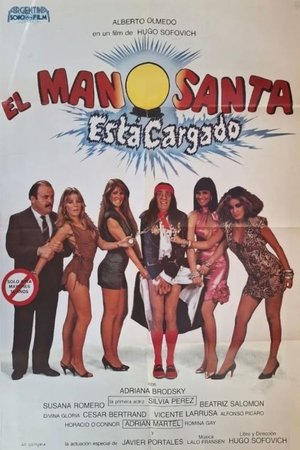 7.1
7.1El Manosanta está Cargado(es)
A common man that is tired of being treated as stupid, and starts treating other people the same way, acting as a Brazilian "Manosanta" (folk healer that cures people illnesses).
 10.0
10.0Dove muore il silenzio(it)
In an exclusive consortium isolated from the rest of the world, Gianmarco, a young man obsessed by a series of mysterious suicides, begins a personal investigation to uncover the truth. The more he digs, the more the boundaries between reality and paranoia become thinner, dragging him into a vortex of suspicion and obsession. When everything seems to lead him to a single, disturbing conclusion, he will discover that some truths are not meant to be revealed... and that it may be too late to turn back.
 4.7
4.7No Love in the City 3(ru)
Our three hapless heroes - Igor, Artyom, and Sauna - return for the third lesson from St. Valentine. This time they must learn the true value of fatherhood, but this time the kids are grown up...
 8.2
8.2Triller Fight Club Presents: Triad Combat - Pulev vs. Mir(en)
Triller Fight Club presents Triad Combat on Saturday, November 27 at Globe Life Stadium, in Arlington, TX with a the main card featuring former champion Frank Mir competing against Kubrat Pulev in the Heavyweight Division and a special live Heavy Metal Concert by Metallica.
Similar Movies
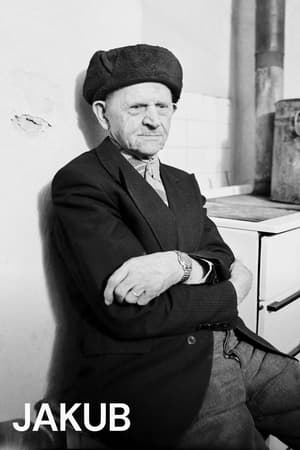 6.8
6.8Jakub(cs)
Jakub presents an extensive ethnographical-sociological study of the life of the Ruthenians, filmed in the Maramuresh mountains in the north of Romania and in the former Sudetenland in Western Bohemia. The film was made over a period of five years during the time of both totalitarian regimes and was completed in 1992 after the revolution.
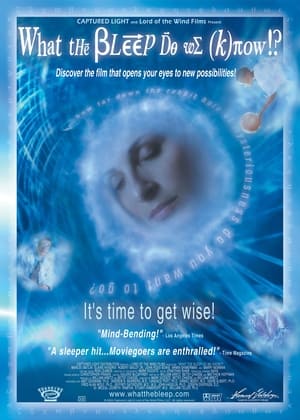 5.0
5.0What the #$*! Do We (K)now!?(en)
Amanda is a divorced woman who makes a living as a photographer. During the Fall of the year Amanda begins to see the world in new and different ways when she begins to question her role in life, her relationships with her career and men and what it all means. As the layers to her everyday experiences fall away insertions in the story with scientists, and philosophers and religious leaders impart information directly to an off-screen interviewer about academic issues, and Amanda begins to understand the basis to the quantum world beneath. During her epiphany as she considers the Great Questions raised by the host of inserted thinkers, she slowly comprehends the various inspirations and begins to see the world in a new way.
Ariel(en)
When Ariel was just 33, his legs were shredded by an industrial dough mixer in Mendoza, Argentina. He became a living embodiment of the ongoing duel between man and machine. From that point on, he began to rediscover the meaning of freedom: to rebuild his broken identity, keep his family together and design his own prosthetic legs. Following Ariel for 10 years from the time of the accident, director Laura Bari has created an intimate and metaphorical portrait of Ariel’s newfound transhumanity, juxtaposing his daily life with dreamlike inner worlds—and pushing the boundary between the real and the imaginary.
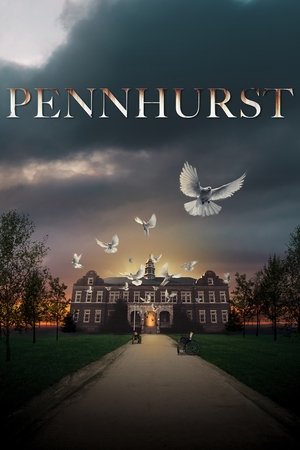 0.0
0.0Pennhurst(en)
Segregation, abandonment, and the meaning of home are discussed by the people that lived in, worked at, and crusaded for one of the largest and oldest Intellectual and Developmental Disability Institutions in the United States. The facility, in its closing, challenged society's perception of those with intellectual disabilities and ultimately fought for better rights.
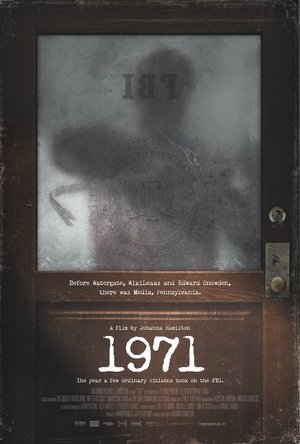 6.7
6.71971(en)
Forty years before WikiLeaks and the NSA scandal, there was Media, Pennsylvania. In 1971, eight activists plotted an intricate break-in to the local FBI offices to leak stolen documents and expose the illegal surveillance of ordinary Americans in an era of anti-war activism. In this riveting heist story, the perpetrators reveal themselves for the first time, reflecting on their actions and raising broader questions surrounding security leaks in activism today.
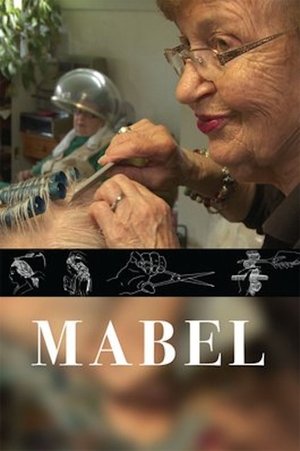 0.0
0.0Mabel(en)
Feisty, fiercely independent and firmly rooted in place, 90 year-old Mabel Robinson broke barriers back in the 40s when she became the first woman in Hubbards, Nova Scotia, to launch her own business—a hairdressing salon where she still provides shampoo-n-sets over 70 years later. Weaving animation and archival imagery with intimate and laugh out loud moments in the salon, the film celebrates the power of friendship, doing what you love and staying active. With no desire to retire anytime soon, Mabel gives voice to a generation who are not front and center of cinema or the pop hairstyles of the day, and subtly shifts the lens on our perception of beauty and the elderly.
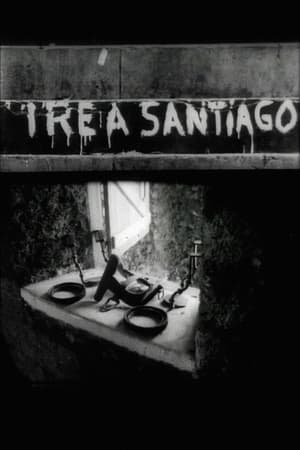 6.1
6.1I'm Going to Santiago(es)
This black-and-white film is a loving portrait of Santiago de Cuba and its people. It provides a view of Cuba as a picturesque country, the product of an earthy mix of black and criollo cultures. The film uses historical images which portray the end of the eighteenth century when Haitian slave owners fled with their slaves to Cuba after the Haitian Revolution.
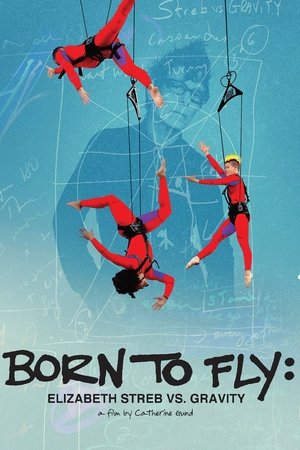 5.2
5.2Born to Fly: Elizabeth Streb vs. Gravity(en)
Born to Fly pushes the boundaries between action and art, daring us to join choreographer Elizabeth Streb and her dancers in pursuit of human flight.
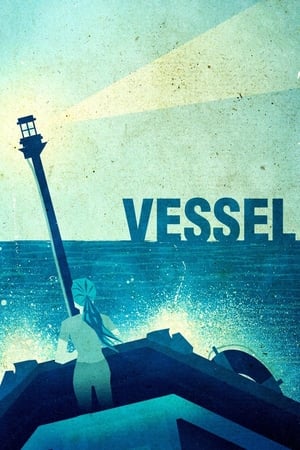 7.4
7.4Vessel(en)
A fearless sea captain, Dr. Rebecca Gomperts, sails a ship through loopholes in international law, providing abortions on the high seas, and leaving in her wake a network of emboldened activists who trust women to handle abortion on their own terms.
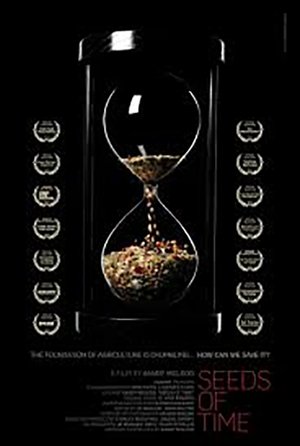 10.0
10.0Seeds of Time(en)
Seeds of Time follows agriculture pioneer Cary Fowler's global journey to save the eroding foundation of our food supply in a new era of climate change.
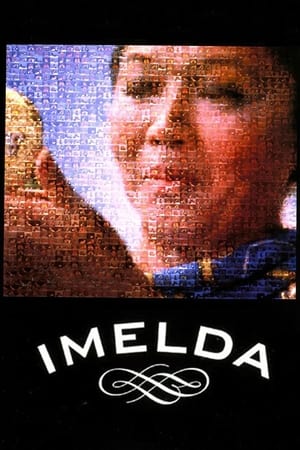 7.3
7.3Imelda(en)
A "beyond the shoes" documentary on the former first lady of the Philippines, Imelda Marcos.
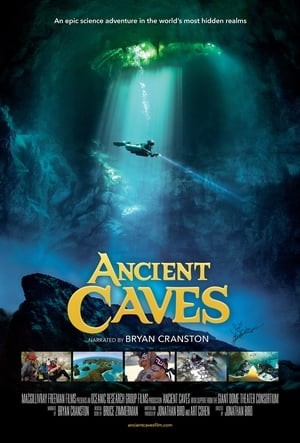 10.0
10.0Ancient Caves(en)
Ancient Caves brings science and adventure together as it follows paleoclimatologist Dr. Gina Moseley on a mission to unlock the secrets of the Earth’s climate in the most unlikely of places: caves. Moseley and her team of cave explorers travel the world exploring vast underground worlds in search of stalagmite samples – geologic “fingerprints” – that reveal clues about the planet’s climate history. Their quest leads them to some of the world’s most remote caves, both above and below the water, in France, Iceland, the Bahamas, the U.S. and Mexico’s Yucatan Peninsula. Together, they go where very few humans will ever go, revealing the incredible lengths scientists will go to study the unknown.
 6.4
6.4Afternoon of a Faun: Tanaquil Le Clercq(en)
Of all the great ballerinas, Tanaquil Le Clercq may have been the most transcendent. With a body unlike any before hers, she mesmerized viewers and choreographers alike. With her elongated, race-horse physique, she became the new prototype for the great George Balanchine. Because of her extraordinary movement and unique personality on stage, she became a muse to two of the greatest choreographers in dance, George Balanchine and Jerome Robbins. She eventually married Balanchine, and Robbins created his famous version of Afternoon of a Faun for her. She had love, fame, adoration, and was the foremost dancer of her day until it suddenly all stopped. At the age of 27, she was struck down by polio and paralyzed. She never danced again. The ballet world has been haunted by her story ever since.
 6.9
6.9Olympia: Part One – Festival of the Nations(de)
Commissioned to make a propaganda film about the 1936 Olympic Games in Germany, director Leni Riefenstahl created a celebration of the human form. This first half of her two-part film opens with a renowned introduction that compares modern Olympians to classical Greek heroes, then goes on to provide thrilling in-the-moment coverage of some of the games' most celebrated moments, including African-American athlete Jesse Owens winning a then-unprecedented four gold medals.
 6.7
6.7Olympia: Part Two – Festival of Beauty(de)
Commissioned to make a propaganda film about the 1936 Olympic Games in Germany, director Leni Riefenstahl created a celebration of the human form. Where the two-part epic's first half, Festival of the Nations, focused on the international aspects of the 1936 Olympic Games held in Berlin, part two, The Festival of Beauty, concentrates on individual athletes such as equestrians, gymnasts, and swimmers, climaxing with American Glenn Morris' performance in the decathalon and the games' majestic closing ceremonies.
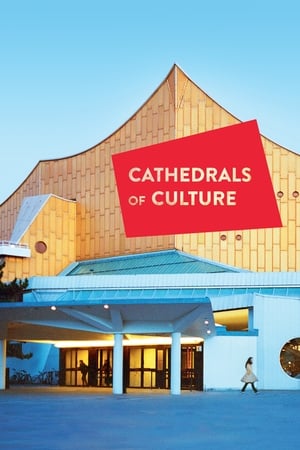 5.7
5.7Cathedrals of Culture(en)
"If buildings could talk, what would they say about us?" CATHEDRALS OF CULTURE offers six startling responses. This 3D film project about the soul of buildings allows six iconic and very different buildings to speak for themselves, examining human life from the unblinking perspective of a manmade structure. Six acclaimed filmmakers bring their own visual style and artistic approach to the project. Buildings, they show us, are material manifestations of human thought and action: the Berlin Philharmonic, an icon of modernity; the National Library of Russia, a kingdom of thoughts; Halden Prison, the world's most humane prison; the Salk Institute, an institute for breakthrough science; the Oslo Opera House, a futuristic symbiosis of art and life; and the Centre Pompidou, a modern culture machine. CATHEDRALS OF CULTURE explores how each of these landmarks reflects our culture and guards our collective memory.
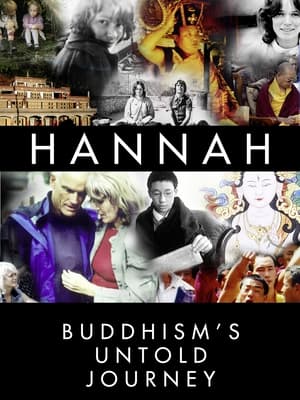 7.4
7.4Hannah: Buddhism's Untold Journey(en)
'Hannah' tells the story of Buddhist pioneer Hannah Nydahl and her life bringing Tibetan Buddhism to the West. From her idealistic roots in 1960's Copenhagen to the hippie trail in Nepal, Hannah and her husband Ole became two of the first Western students of His Holiness the 16th Karmapa - the first consciously reincarnated lama of Tibet in 1110. Hannah went on to become an assistant and translator for some of the most powerful Tibetan lamas and a bridge between Buddhism in the East and the West.
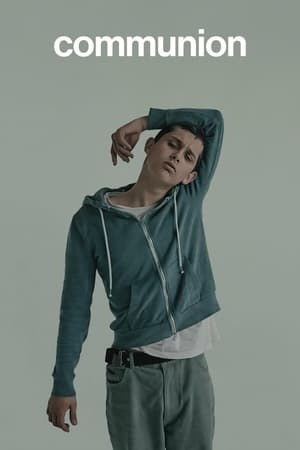 7.0
7.0Communion(pl)
When adults are ineffectual, children have to grow up quickly. Ola is 14 and she takes care of her dysfunctional father, autistic brother and a mother who lives apart from them and is mainly heard the phone. Most of all she wants to reunite a family that simply doesn’t work — like a defective TV set. She lives in the hope of bringing her mother back home. Her 13 year old brother Nikodem’s Holy Communion is a pretext for the family to meet up. Ola is entirely responsible for preparing the perfect family celebration. “Communion” reveals the beauty of the rejected, the strength of the weak and the need for change when change seems impossible. This crash course in growing up teaches us that failure is not final. Especially when love is in question.
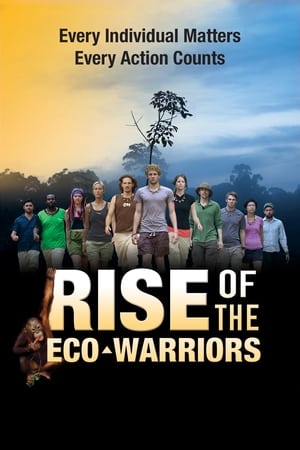 0.0
0.0Rise of the Eco-Warriors(en)
A group of passionate young environmentalists spend 100 days in the jungles of Borneo in effort to save the rainforests and its endangered orangutans in this Australian documentary...
 7.1
7.1The Story of the Weeping Camel(mn)
When a Mongolian nomadic family's newest camel colt is rejected by its mother, a musician is needed for a ritual to change her mind.
